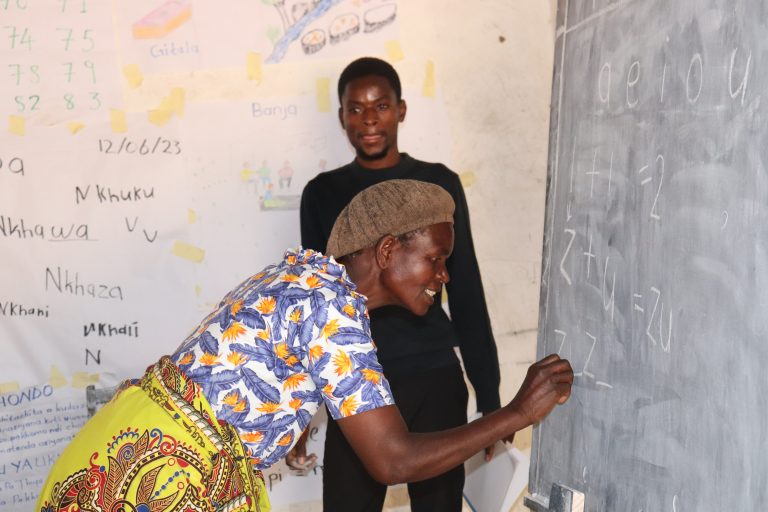Empowering citizens for informed voting
13 April 2024 | Dyson Mthawanji | DVV International Malawi Political Education Benefits of ALE In Africa

Malawians go to polls on 16 September next year while South African citizens will cast their vote on 29 May this year. For South Africa, the electoral process is now at the peak. For Malawi, the electoral process has just begun following the Malawi Government Gazette Extraordinary which has provided details regarding the number of constituencies, date for elections and other key information.
The electoral process is a cornerstone of any democratic society, providing citizens with the opportunity to choose their representatives and shape the direction of their nation. However, the effectiveness of the electoral process relies heavily on the informed participation of voters. Adult education plays a crucial role in empowering individuals with the knowledge and skills necessary to make informed decisions during elections.
In democratic societies, adult education serves as a catalyst for active citizenship and informed decision-making. It encompasses various educational activities, including literacy programmes, civic education, and political awareness initiatives. By providing individuals with a platform for lifelong learning, adult education empowers citizens to engage meaningfully in the electoral process, contributing to the overall health of democracy.
Adult education programs play a vital role in enhancing voter literacy, particularly in countries where literacy rates may be low. By equipping individuals with basic literacy skills, such as reading, writing, and numeracy, these programmes enable citizens to understand electoral materials, comprehend candidate manifestos, and evaluate political messages effectively. In Malawi and South Africa, where upcoming elections are on the horizon, adult education initiatives are bridging the literacy gap, ensuring that all citizens have the necessary skills to participate actively in the electoral process.
Civic education is another crucial component of adult education, aiming to promote an understanding of the democratic process, citizens' rights and responsibilities, and the significance of their participation. By providing individuals with knowledge about the electoral system, political parties, and the role of elected representatives, civic education fosters a sense of civic engagement and encourages active citizenship. In both Malawi and South Africa, where citizens are preparing to exercise their voting rights, adult education programmes should empower individuals to make informed choices and engage in broader political discourse.
Furthermore, adult education plays a fundamental role in developing critical thinking skills among citizens. By equipping individuals with the ability to analyse political information critically, adult education enables them to evaluate the credibility of political claims, assess policy proposals, and differentiate between facts and propaganda. These skills are crucial for voters to make well-informed choices during elections. In Malawi and South Africa, where political landscapes can be complex and multifaceted, adult education programmes should empower citizens to navigate through the abundance of information and make informed decisions based on facts and analysis.
Political violence is often an unfortunate occurrence in the aftermath of an election. Therefore, political civic education should not end on the day of elections but should be extended beyond this. Soon after elections, the political landscape remains volatile. Democracy stipulates that there must be one winner. Citizens should be educated to accept, regardless of their political party’s efforts during political campaigns, that there must be one winner at the end of the day. This can help to cool down the hearts of the losing party so that all can move on as one nation.
The significance of adult education in the electoral process cannot be overstated. By enhancing voter literacy, promoting civic education, fostering critical thinking, and encouraging political awareness, adult education empowers citizens to make informed decisions during elections. In countries like Malawi and South Africa, where the democratic process is evolving, adult education plays a vital role in ensuring inclusive and well-informed electoral processes. Efforts should be made to address challenges related to funding, outreach, quality, and monitoring to maximize the impact of adult education programmes. Ultimately, an educated and politically aware citizenry is the foundation of a strong and vibrant democracy. Through adult education, individuals can actively participate in shaping the future of their nations and contribute to the growth and development of their societies.